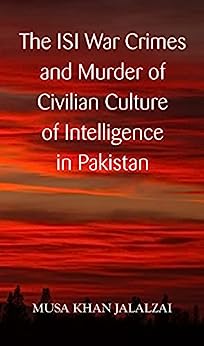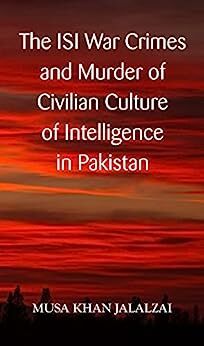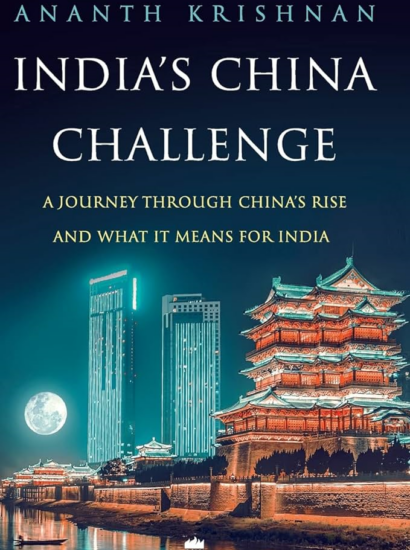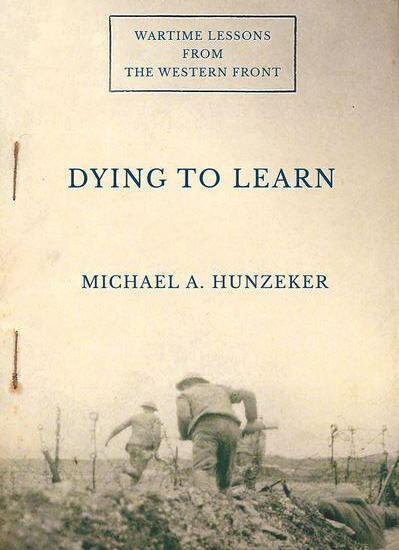Musa Khan Jalalzai, (New Delhi, 2021). pp. 236.

amazon.com
The ISI War Crimes And Murder Of Civilian Culture Of Intelligence In Pakistan presents a comprehensive examination of Pakistan’s Inter Services Intelligence (ISI). Established in 1948 to safeguard national security, the ISI holds considerable influence over the defense and foreign policy decisions in Pakistan, which often results in conflict with other national intelligence agencies. Numerous accounts have claimed that the ISI support global terrorist activities, particularly against India and Afghanistan.
Jalalzai, an experienced journalist with insider contacts, explores the origins and evolution of the ISI in 11 chapters supported by references and primary sources. The book traces the rise of the ISI and its entanglement in civil administration since Pakistan’s independence. The agency’s role in manipulating domestic and foreign policies has resulted in conflict with other intelligence agencies, further politicizing its activities with the support of politicians (in power and in opposition).
From the 1970s till the 1990s, the “critical years” played a significant role in shaping the ISI’s intelligence culture, as it gained strategic experience training the mujahideen against the Soviets and later the Taliban against the U.S. This period was marked by the ISI’s expansion into neighbouring countries like Nepal, which were then used as bases to launch attacks on India.
Said expansion marginalized other intelligence agencies in Pakistan, granting the ISI dominance. Although Western spy agencies consider the ISI superior to its Indian counterpart, the Research and Analysis Wing, the ISI does not possess the professionalism found in organizations like the CIA or Britain’s MI6. It suffers from the same inefficiencies and corruption prevalent in the rest of the Pakistani state. The ISI has repeatedly lost control over its most dangerous assets. Additionally, its analytical capabilities have been questioned, including its tendency to interpret information based on predetermined ideological biases.
The book sheds light on the ISI’s involvement in extrajudicial killings, war crimes, human rights violations, and covert operations against India and Afghanistan. Double dealings with the U.S. and other countries are also explored, revealing the ISI’s self-serving nature and its “miltablishment” apparatus. Its role in managing both internal and external affairs in Pakistan is noted, with journalists, activists, and minority leaders becoming targets of human rights violations.
The book sheds light on the ISI’s involvement in extrajudicial killings, war crimes, human rights violations, and covert operations against India and Afghanistan.
It concludes with an analysis of Pakistan’s internal political situation, highlighting Baloch nationalism, the rise of the Tehreek-e-Taliban Pakistan, and other social movements. Despite the current internal turmoil in Pakistan, the ISI and the Pakistan Army maintain control, ensuring the country remains intact. The ISI’s functioning, overseen by influential generals and army officers, remains unchecked, while civilian oversight remains superficial.
In summary, this book offers valuable insights into Pakistan’s intelligence culture and the dominance of the ISI. Jalalzai’s work presents a compelling account of the agency’s actions, making it a significant read for both general audiences and subject experts seeking to understand the ISI’s role within Pakistan’s intelligence landscape.
Wankhede Rahul Bhojraj is a research scholar at the JNU Special Centre for National Security Studies. He previously worked as an assistant professor at Savitribai Phule Pune University. His previous publications include web articles, book chapters and journal articles. The views contained in this article are the author’s alone.






